November 21 stands as one of history’s most eventful days, witnessing the rise and fall of empires, groundbreaking discoveries, and moments that shaped our modern world across centuries of human achievement.

Politics and Government Events on November 21
1918 – Parliament (Qualification of Women) Act Passed
The British Parliament revolutionized women’s political rights by passing legislation allowing women to stand for Parliament. This landmark act dismantled centuries of male-only political representation in the United Kingdom.
The legislation emerged from the suffragette movement’s persistent advocacy and women’s contributions during World War I. This historic vote opened Westminster’s doors to female representation for the first time.
1922 – First Female US Senator Takes Office
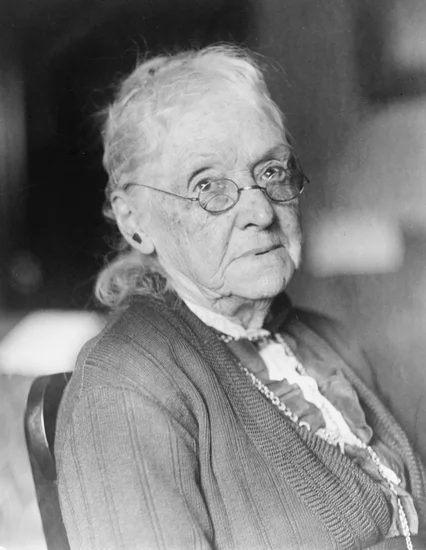
Rebecca Latimer Felton of Georgia made history by taking the oath of office as America’s first female United States Senator. Her appointment broke the ultimate glass ceiling in American federal politics.
Felton served only one day before her successor arrived, but her symbolic presence established precedent for women’s participation. Her brief tenure paved the way for future generations of female legislators.
1954 – People’s Action Party Established
Singapore’s People’s Action Party formed on this date, destined to become the island nation’s dominant political force. The party’s founding marked the beginning of Singapore’s journey toward independence and modernization.
Led by future Prime Minister Lee Kuan Yew, the party would transform Singapore from colonial territory to global economic powerhouse. Their political vision shaped modern Singapore’s remarkable development trajectory.
1972 – South Korea Approves New Constitution

South Korean voters overwhelmingly approved a new constitution that legitimized Park Chung Hee’s authoritarian rule and established the Fourth Republic. The referendum granted extensive powers to the presidency while limiting democratic freedoms.
The constitution concentrated executive authority and suppressed political opposition throughout the 1970s. This governmental restructuring significantly impacted South Korea’s political development during the Cold War era.
2017 – Robert Mugabe Resigns as Zimbabwe President
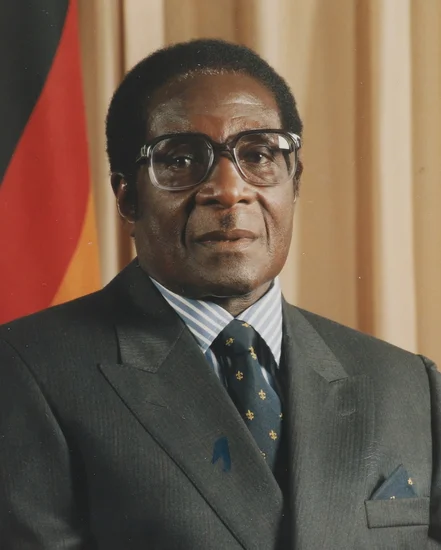
Robert Mugabe formally resigned as President of Zimbabwe after thirty-seven years of increasingly authoritarian rule. His departure ended one of Africa’s longest-running presidencies and marked a pivotal moment in Zimbabwean history.
Military pressure and popular demonstrations forced Mugabe’s hand after decades of economic mismanagement and political repression. His resignation opened possibilities for democratic renewal in the troubled southern African nation.
Military and Naval History on November 21
1916 – HMHS Britannic Sunk by Mines
Mines laid by German submarine SM U-73 sank the hospital ship HMHS Britannic in the Aegean Sea. The vessel became the largest ship lost during World War I, though fortunately most passengers and crew survived.
The Britannic was the sister ship of the ill-fated Titanic, serving as a hospital ship during the Great War. Her sinking demonstrated the dangerous conditions faced by medical vessels in wartime waters.
1920 – Bloody Sunday in Dublin
The Irish Republican Army assassinated British Intelligence agents across Dublin in coordinated morning strikes. British forces retaliated by opening fire on civilians at a Gaelic football match in Croke Park, killing fourteen spectators.
This violent day escalated the Irish War of Independence and hardened attitudes on both sides. The events became symbolic of the brutal cycle of violence that characterized the independence struggle.
1942 – USS Sealion Sinks Japanese Battleship
American submarine USS Sealion successfully sank the Japanese battleship Kongō and destroyer Urakaze in the Formosa Strait. This underwater victory demonstrated American submarines’ growing effectiveness against Japanese naval forces.
The sinking of Kongō marked a significant blow to Japanese naval power in the Pacific Theater. American submarine warfare increasingly disrupted Japanese supply lines and naval operations throughout the war.
1970 – Operation Ivory Coast Prisoner Rescue
Joint United States Air Force and Army teams conducted a daring raid on the Sơn Tây prisoner-of-war camp in North Vietnam. The mission aimed to rescue American prisoners believed held at the heavily guarded facility.
Although the raid found no prisoners at the location, it demonstrated American commitment to recovering captured personnel. The operation showcased advanced helicopter tactics and special operations capabilities during the Vietnam conflict.
Science and Discovery Milestones on November 21
1905 – Einstein’s Mass-Energy Equivalence Published
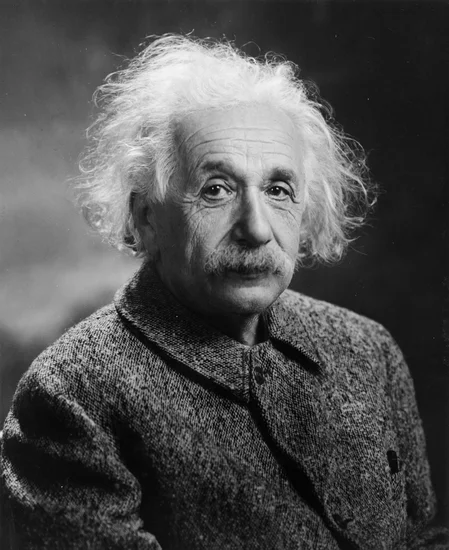
Albert Einstein’s groundbreaking paper establishing the mass-energy equivalence formula E=mc² appeared in the journal Annalen der Physik. This publication revolutionized humanity’s understanding of matter, energy, and the fundamental nature of the universe.
The equation revealed that mass and energy are interchangeable, laying theoretical groundwork for nuclear physics. Einstein’s insight would eventually enable both nuclear power generation and atomic weapons development.
1953 – Piltdown Man Exposed as Hoax
The Natural History Museum in London announced that the famous “Piltdown Man” skull was an elaborate scientific hoax. The revelation shattered decades of paleontological theory built around this supposed missing link in human evolution.
Scientific analysis revealed the skull combined human and orangutan bones artificially aged to appear ancient. This exposure highlighted the importance of rigorous scientific verification and peer review in archaeological discoveries.
1969 – First ARPANET Connection Established

The first permanent ARPANET link connected UCLA and Stanford Research Institute, creating the foundation of the modern internet. This historic connection transmitted the first message between computers over a wide area network.
The successful data transmission marked the beginning of the digital age and global connectivity. This technological breakthrough would eventually transform communication, commerce, and information sharing worldwide.
Cultural and Arts Events on November 21
1961 – First US Revolving Restaurant Opens
“La Ronde” opened in Honolulu as America’s first revolving restaurant, offering diners panoramic views while they ate. This innovative dining concept combined culinary experience with architectural engineering and scenic entertainment.
The rotating restaurant became a symbol of mid-century modern design and technological optimism. Similar establishments would soon appear in major cities worldwide, transforming urban dining experiences.
1959 – Alan Freed Fired Over Payola Scandal

Influential disc jockey Alan Freed was dismissed from WABC radio following allegations of participating in the payola scandal. Freed had popularized the term “rock and roll” and championed the new musical genre throughout the 1950s.
His firing marked the end of an era in rock music promotion and radio broadcasting. The scandal exposed widespread corruption in the music industry and led to significant regulatory changes.
1962 – Vatican II Third Session Closes

The Second Vatican Council concluded its third session, continuing the Catholic Church’s most significant modernization effort in centuries. The council addressed liturgical reforms, interfaith relations, and the Church’s role in the contemporary world.
These deliberations fundamentally transformed Catholic worship and doctrine, making the Church more accessible to modern believers. The council’s decisions affected over one billion Catholics worldwide and reshaped Christian ecumenical relations.
Religious and Social Events on November 21
1918 – Lwów Pogrom Begins
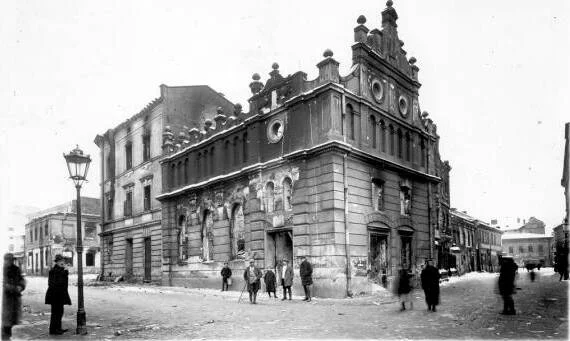
A devastating pogrom erupted in Lwów (modern-day Lviv) that would claim at least 50 Jewish lives and 270 Ukrainian Christian lives over three days. Polish forces and civilians participated in the systematic violence against minority communities.
The massacre reflected deep ethnic tensions in the collapsing Austro-Hungarian Empire’s former territories. These violent events foreshadowed the region’s tragic twentieth-century history of ethnic conflict and persecution.
1979 – US Embassy Attacked in Islamabad
An angry mob attacked and set fire to the United States Embassy in Islamabad, Pakistan, killing four people. The assault reflected growing anti-American sentiment in the Islamic world following various political controversies.
The embassy attack highlighted deteriorating US-Pakistan relations and broader tensions between Western and Islamic nations. Security concerns at American diplomatic facilities worldwide increased significantly following this violent incident.
2013 – Ukrainian Protests Begin

Massive protests erupted across Ukraine after President Viktor Yanukovych suspended signing the Ukraine-European Union Association Agreement. These demonstrations marked the beginning of what would become the Euromaidan revolution.
The protests reflected deep divisions within Ukrainian society between pro-European and pro-Russian factions. These events would eventually lead to Yanukovych’s removal from office and significant geopolitical consequences.
Business and Economic Events on November 21
1945 – United Auto Workers Strike General Motors
The United Auto Workers launched a massive strike affecting 92 General Motors plants across 50 cities, demanding a 30-percent wage increase. This labor action became one of the largest industrial strikes in American history.
The strike lasted 113 days and established important precedents for post-war labor relations. Workers ultimately secured significant wage increases and benefits that helped create America’s prosperous middle class.
1980 – MGM Grand Hotel Fire Disaster

A catastrophic fire swept through the MGM Grand Hotel in Las Vegas, killing 85 people and injuring over 650 others. The disaster became Nevada’s deadliest tragedy and exposed serious deficiencies in hotel fire safety systems.
The fire led to comprehensive reforms in building codes, fire safety regulations, and emergency procedures nationwide. Las Vegas hospitality industry implemented extensive safety upgrades following this devastating incident.
2004 – Paris Club Forgives Iraqi Debt

The Paris Club of creditor nations agreed to forgive 80 percent of Iraq’s external debt, potentially eliminating up to $100 billion in obligations. This massive debt relief aimed to support Iraq’s post-invasion economic reconstruction.
The agreement represented unprecedented international cooperation in addressing a war-torn nation’s financial crisis. Debt forgiveness provided Iraq with crucial fiscal space for rebuilding infrastructure and governmental institutions.
Transportation and Infrastructure on November 21
1942 – Alaska Highway Construction Completed
The Alaska Highway construction reached completion, connecting the continental United States with Alaska through Canadian territory. This 1,700-mile road provided crucial overland access to America’s northern territory during World War II.
The highway’s completion represented a remarkable engineering achievement accomplished in harsh wilderness conditions. Though initially rough and suitable only for military vehicles, the road eventually became a vital transportation artery.
1964 – Verrazzano-Narrows Bridge Opens

The Verrazzano-Narrows Bridge opened to traffic, connecting Staten Island and Brooklyn with the world’s longest suspension bridge span at the time. This engineering marvel completed New York City’s highway system and facilitated regional transportation.
The bridge’s construction required innovative engineering solutions and displaced numerous families from their homes. Its opening dramatically improved connectivity between New York’s boroughs and supported economic development.
1950 – Canoe River Train Crash
Two Canadian National Railway trains collided in northeastern British Columbia, killing 21 people including 17 Canadian troops bound for Korean War service. The devastating accident highlighted railway safety concerns in remote mountainous terrain.
The crash occurred when a westbound passenger train struck an eastbound freight train on a single-track section. This tragedy led to improved railway communication systems and safety protocols across Canada.
Sports and Recreation on November 21
1902 – First Professional Night Football Game

The Philadelphia Football Athletics defeated the Kanaweola Athletic Club of Elmira, New York, 39-0, in professional American football’s first-ever night game. This historic match demonstrated the sport’s growing popularity and commercial potential.
The game’s success proved that artificial lighting could extend football’s playing season and attract larger audiences. Night games would eventually become standard practice in professional and college football.
1959 – Max Baer Dies
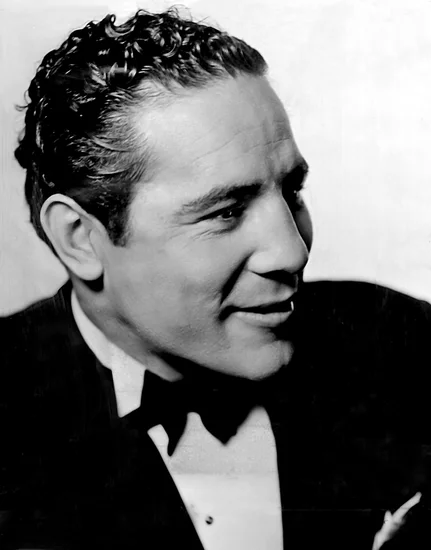
Heavyweight boxing champion Max Baer died at age 50, ending the life of one of boxing’s most colorful personalities. Baer had defeated Primo Carnera for the heavyweight title in 1934 and became known for his powerful right hand.
His flamboyant personality and Hollywood connections made him a celebrity beyond boxing circles. Baer’s death marked the end of an era in heavyweight boxing’s golden age.
1970 – C.V. Raman Dies

Nobel Prize-winning physicist C.V. Raman died at age 82, concluding a remarkable scientific career that brought international recognition to Indian science. Raman had won the Nobel Prize in Physics in 1930 for his work on light scattering.
His research on the scattering of light, known as the Raman Effect, revolutionized spectroscopy and optical physics. Raman’s achievements inspired generations of Indian scientists and established India’s scientific reputation globally.
Notable Births on November 21
1902 – Isaac Bashevis Singer Born
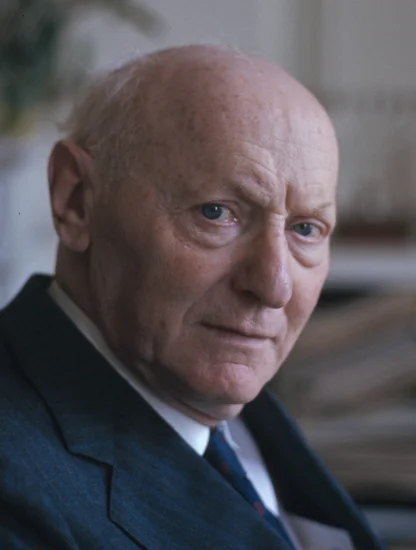
Future Nobel Prize-winning author Isaac Bashevis Singer was born in Poland, beginning a life that would bridge Eastern European Jewish culture and American literature. His childhood in traditional Jewish communities provided rich material for his later writings.
Singer would become renowned for his short stories and novels exploring Jewish life in both Poland and America. His works captured the vanishing world of Eastern European Jewry with humor, wisdom, and profound humanity.
1920 – Stan Musial Born

Baseball legend Stan Musial entered the world in Pennsylvania, starting a journey toward becoming one of America’s greatest athletes. His humble beginnings in a Polish-American family instilled the work ethic that would define his career.
Musial would become the St. Louis Cardinals’ greatest player, earning the nickname “Stan the Man” for his consistent excellence. His 22-year career established him as one of baseball’s most beloved and respected figures.
1945 – Goldie Hawn Born

Future Academy Award-winning actress Goldie Hawn was born in Washington, D.C., beginning a path toward Hollywood stardom. Her early training in dance and performance arts prepared her for entertainment industry success.
Hawn would become one of Hollywood’s most successful actresses and producers, known for her comedic timing and infectious personality. Her career spanned decades and helped establish her as a beloved cultural icon.
1965 – Björk Born

Icelandic singer-songwriter Björk was born in Reykjavík, beginning an artistic journey that would revolutionize popular music. Her early exposure to Iceland’s unique cultural environment shaped her distinctive creative vision.
Björk would become one of the most innovative and influential artists of her generation, blending electronic music with avant-garde artistry. Her groundbreaking work challenged musical conventions and inspired countless musicians worldwide.
1966 – Troy Aikman Born

Future NFL Hall of Fame quarterback Troy Aikman was born in California, starting a path toward football greatness. His athletic talents emerged early, leading to collegiate success and professional stardom.
Aikman would lead the Dallas Cowboys to three Super Bowl victories and become one of the most successful quarterbacks in NFL history. His leadership and precision passing defined the Cowboys’ 1990s championship era.
1971 – Michael Strahan Born

Future NFL defensive end and television personality Michael Strahan was born in Texas, beginning a journey toward athletic and media success. His size and athletic ability made him a natural football player from an early age.
Strahan would become one of the NFL’s most dominant pass rushers and later transitioned successfully to television broadcasting. His charismatic personality made him equally successful in sports and entertainment media.
Notable Deaths on November 21
1916 – Franz Joseph I Dies

Austrian Emperor Franz Joseph I died at age 86, ending the longest reign in Austrian history at 68 years. His death marked the end of an era as the Austro-Hungarian Empire crumbled during World War I.
Franz Joseph had witnessed his empire’s transformation from feudal monarchy to modern state while struggling with nationalist movements. His passing symbolized the collapse of Europe’s old imperial order amid the Great War’s devastation.
1970 – C.V. Raman Dies

Nobel Prize-winning physicist C.V. Raman died at age 82, concluding a remarkable scientific career that brought international recognition to Indian science. Raman had won the Nobel Prize in Physics in 1930 for discovering the Raman Effect.
His groundbreaking research on light scattering revolutionized spectroscopy and optical physics worldwide. Raman’s achievements inspired generations of Indian scientists and established India’s reputation as a center of scientific excellence.
1993 – Bill Bixby Dies
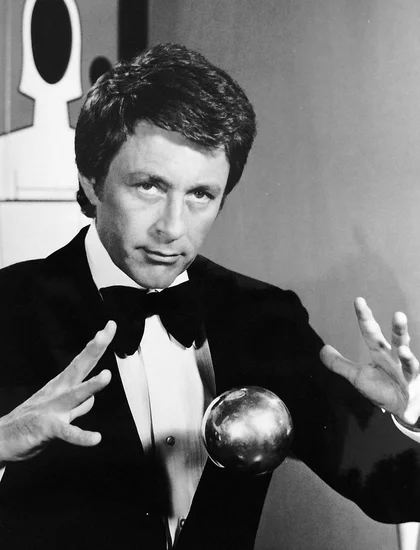
Beloved actor Bill Bixby died at age 59, ending a career that spanned television, film, and theater. He was best known for his roles in “The Incredible Hulk,” “The Courtship of Eddie’s Father,” and “My Favorite Martian.”
Bixby’s versatility as both actor and director made him one of television’s most respected performers. His death from cancer cut short a career that had brought joy to millions of viewers worldwide.
2000 – Emil Zátopek Dies

Legendary Czech distance runner Emil Zátopek died at age 78, concluding one of the most remarkable careers in Olympic history. Known as the “Czech Locomotive,” he had revolutionized distance running with his unique training methods.
Zátopek’s triple gold medal performance at the 1952 Olympics in the 5,000 meters, 10,000 meters, and marathon remains unmatched. His achievements and sportsmanship made him one of the most beloved athletes of the twentieth century.
2006 – Pierre Gemayel Assassinated
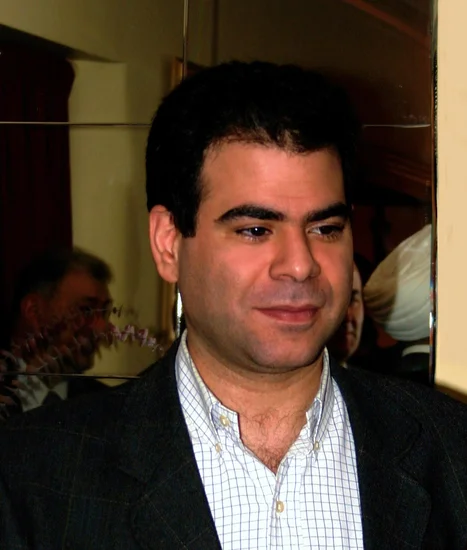
Lebanese politician Pierre Gemayel was assassinated in Beirut at age 34, highlighting the dangerous political climate in post-war Lebanon. The anti-Syrian government minister’s murder shocked the nation and international community.
Gemayel’s assassination was part of a series of political killings that destabilized Lebanese democracy. His death underscored the continuing foreign interference and sectarian tensions plaguing the country.
2017 – David Cassidy Dies

Singer and actor David Cassidy died at age 67, ending a career that made him a teen idol in the 1970s. His role in “The Partridge Family” and hit songs like “I Think I Love You” defined a generation’s musical memories.
Cassidy’s death from organ failure followed years of struggle with alcoholism and dementia. His passing marked the end of an era in American popular culture and teen entertainment.
Holidays and Observances on November 21
World Television Day
The United Nations designated November 21 as World Television Day to recognize television’s increasing impact on global communication and decision-making. This observance celebrates television’s role in presenting global issues and enhancing international cooperation.
Television has transformed how people worldwide access information, entertainment, and education. The day highlights broadcasting’s power to unite diverse populations and promote understanding across cultural boundaries.
Armed Forces Day in Bangladesh
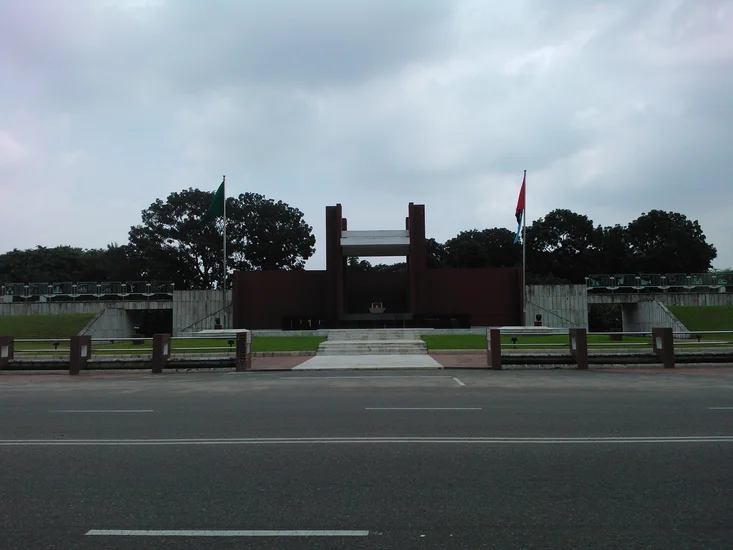
Bangladesh observes Armed Forces Day on November 21 to honor the nation’s military personnel and their service to the country. This national holiday recognizes the armed forces’ role in defending sovereignty and supporting national development.
The observance includes parades, ceremonies, and public recognition of military achievements and sacrifices. Citizens express gratitude for the armed forces’ dedication to protecting Bangladesh’s independence and territorial integrity.
Presentation of the Blessed Virgin Mary
The Catholic Church celebrates the Presentation of the Blessed Virgin Mary on November 21, commemorating Mary’s presentation at the Temple as a child. This feast day honors Mary’s dedication to God and her role in salvation history.
The celebration reflects ancient Christian traditions about Mary’s early life and spiritual formation. Churches worldwide hold special masses and devotions recognizing Mary’s importance in Christian faith and doctrine.
